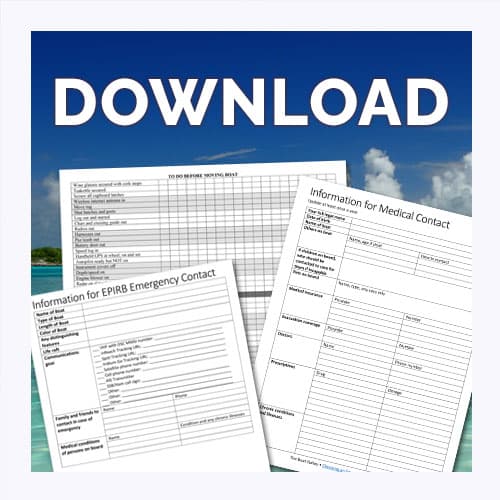Bureaucracy. Legal requirements. Passports. Visas. Boat documents. Pet documents. Checking into foreign countries. Checking out. How can you learn it all?
In this podcast, I give you the best places to find out what you need to know.
Links:
Noonsite Country by Country Details
Prefer to read? See Planning to Cruise Outside Your Home Country
Check out our courses and products

Carolyn Shearlock has lived aboard full-time for 17 years, splitting her time between a Tayana 37 monohull and a Gemini 105 catamaran. She’s cruised over 14,000 miles, from Pacific Mexico and Central America to Florida and the Bahamas, gaining firsthand experience with the joys and challenges of life on the water.
Through The Boat Galley, Carolyn has helped thousands of people explore, prepare for, and enjoy life afloat. She shares her expertise as an instructor at Cruisers University, in leading boating publications, and through her bestselling book, The Boat Galley Cookbook. She is passionate about helping others embark on their liveaboard journey—making life on the water simpler, safer, and more enjoyable.





Dave Skolnick (S/V Auspicious) says
Another good podcast from Carolyn Shearlock. Well done.
I was multitasking while listening so may have missed something. There are two important things I did not hear.
The first is to be aware that the visa waiver program does not apply to private boats or to private aircraft. The visa waiver program is why most travelers do not have to explicitly get a visa to visit many countries. The underlying reason is that the commercial carrier takes responsibility for repatriation (i.e. getting you home) if you get in trouble. There is no such program for private boats and aircraft – you may need a visa. For example, Europeans who can fly to the US without a visa need a B1/B2 visa to arrive by private boat.
Second, regardless of whether you have one person to meet or six, on your boat or in local offices, there are four things going on: customs which ensures you are not bringing anything into the country for resale without paying duty and also applies to import duty for those without definite plans for departure, immigration which ensures people on board are acceptable to the country for entrance and may include showing the means to support yourself and to leave (e.g. many South Pacific nations), Agriculture which ensures you are not bringing any goods that might carry insects or other parasites, bacteria, or viruses that could damage local agriculture, and Health which is concerned with ensuring that you are not carrying human disease (e.g. Zika, Ebola, etc.). There may be other administrative processes, usually a port captain or local law enforcement or both.
When dealing with local officials be clear and honest. If you don’t understand a question ask for an explanation. Do not volunteer information not asked for. Absolutely do not hide things. Don’t hide guns or ammunition, don’t hide prohibited items such as food or pornography, and don’t understate stores of sensitive items such as alcohol or tobacco. Perceptions of a lie can lead to expensive and potentially life altering experiences.
Mark says
Noonsite General Documents You’ll Need
Noonsite Country by Country Details
Facebook Women Who Sail
The problem with the sites mentioned above is some of the information posted is incorrect. While I expect it was posted with good intentions, nonetheless errors are there as well as outdated information. The only place to be certain to have correct information is the website of the country one plans to visit. Noonsite often has a link to the governmental pages.
In reference to the FB Group WOMEN WHO SAIL. – this is kind of a useless reference for at least half of your audience (men). We are not allowed to join the group or open any group documents for information. I guess the women don’t care to share.
Carolyn Shearlock says
I’ve even had incorrect info from country web sites — it’s often very hard to find info that is boat-specific.
Mark says
Very true, but at least if the info is incorrect on the country’s official site, I have some recourse when standing before a magistrate who is about to fine me. I imagine telling the magistrate that I did my research on FB wouldn’t sit well 🙂
Mark
ps – I think The Boat Galley rocks – thanks for all you do 🙂
Dave Skolnick (S/V Auspicious) says
I’ve found this also. Often policy takes a while to get to all the front-line officers, and sometimes front-line officers interpret things differently. Official websites often lag both.